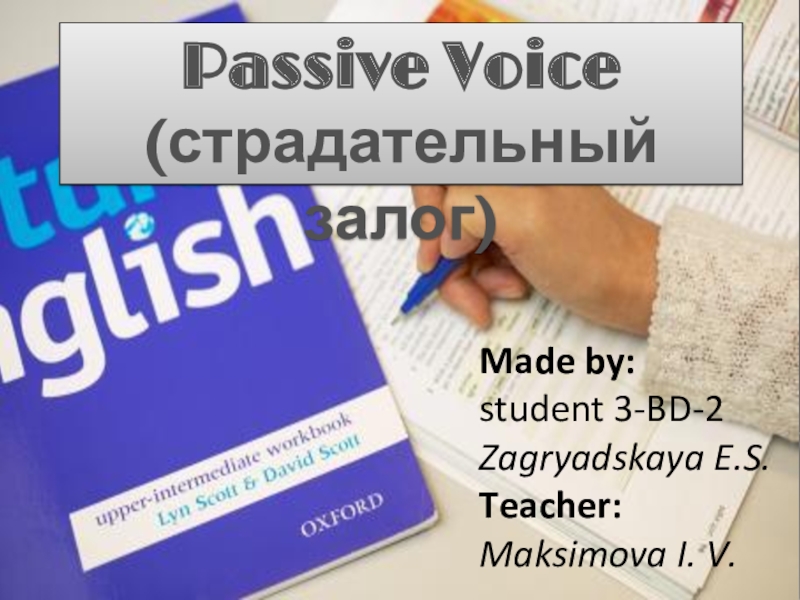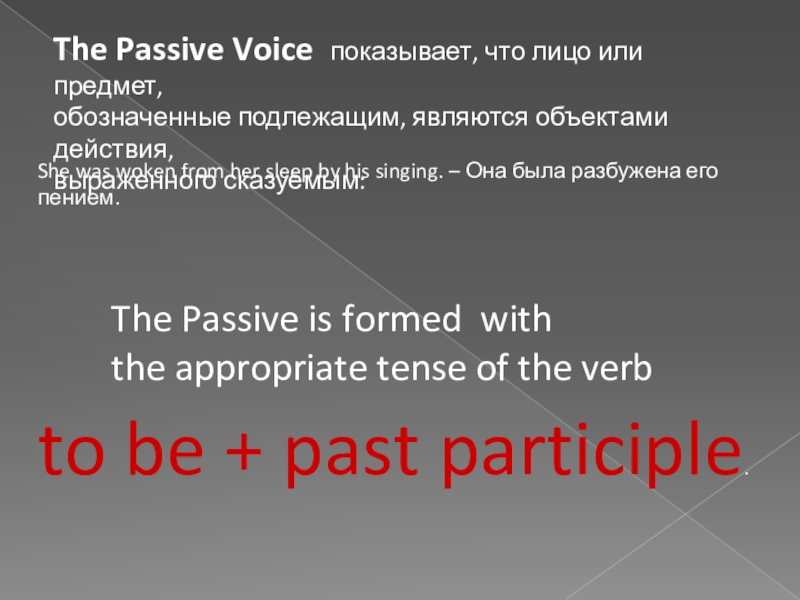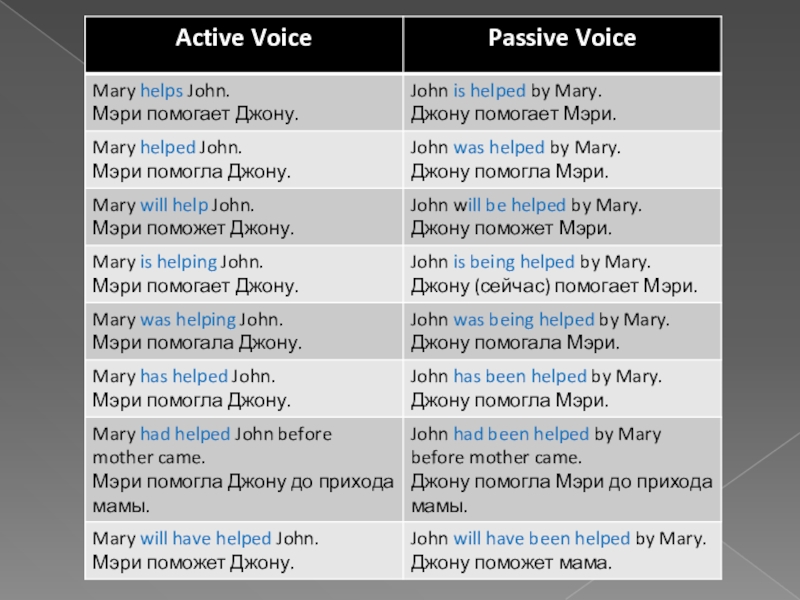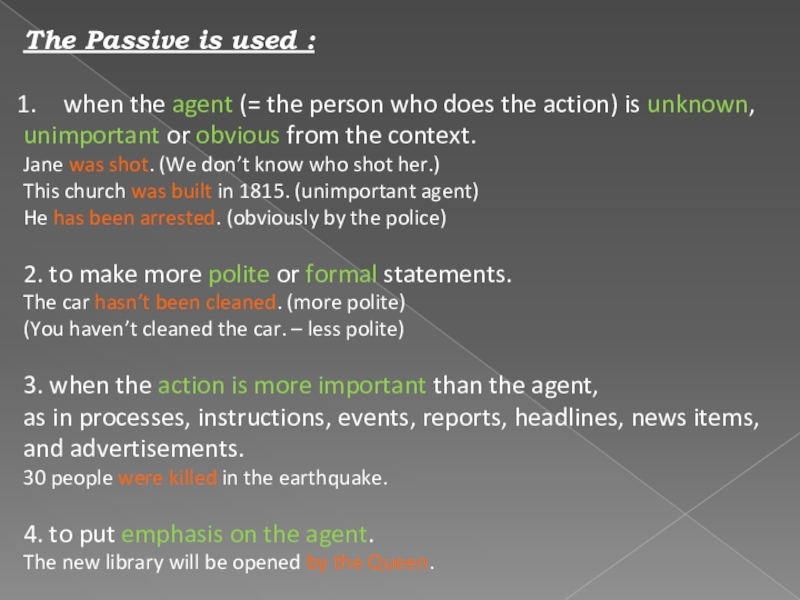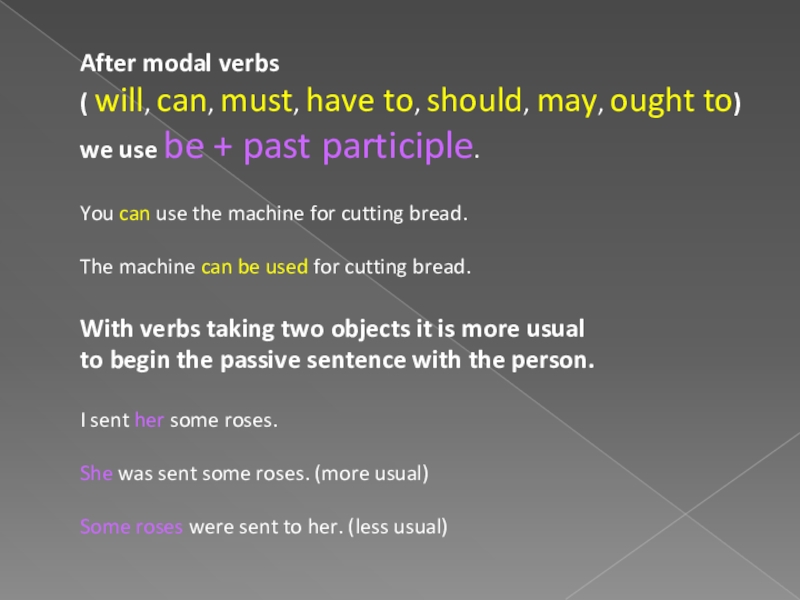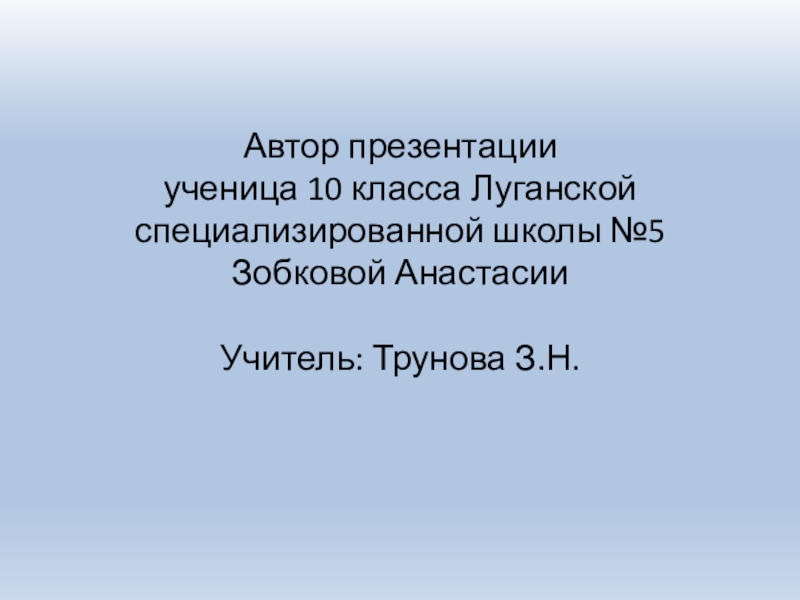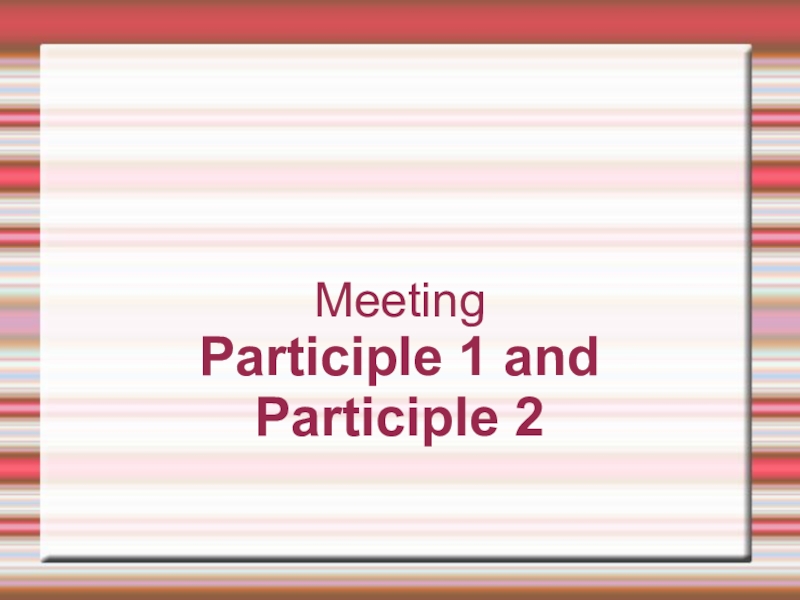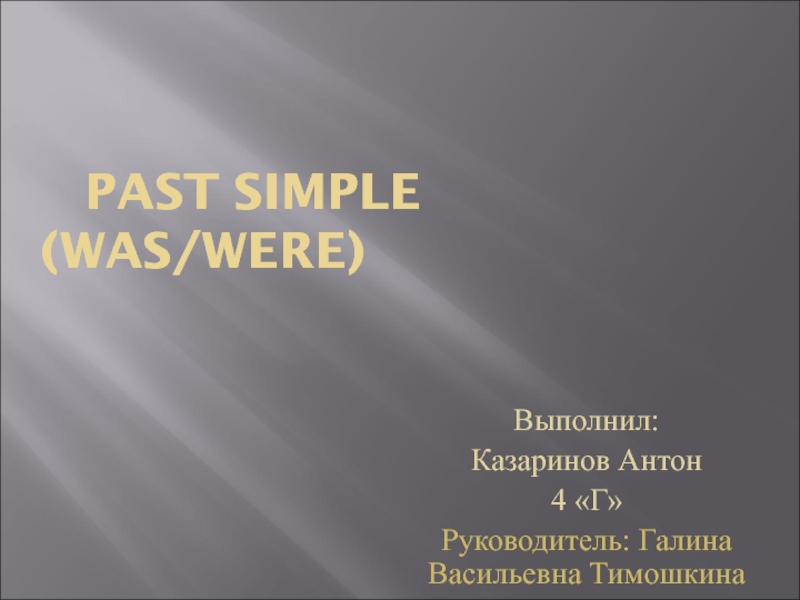- Главная
- Разное
- Образование
- Спорт
- Естествознание
- Природоведение
- Религиоведение
- Французский язык
- Черчение
- Английский язык
- Астрономия
- Алгебра
- Биология
- География
- Геометрия
- Детские презентации
- Информатика
- История
- Литература
- Математика
- Музыка
- МХК
- Немецкий язык
- ОБЖ
- Обществознание
- Окружающий мир
- Педагогика
- Русский язык
- Технология
- Физика
- Философия
- Химия
- Шаблоны, фоны, картинки для презентаций
- Экология
- Экономика
Презентация, доклад The Passive Voice
Содержание
The Passive Voice показывает, что лицо или предмет, обозначенные подлежащим, являются объектами действия, выраженного сказуемым:She was woken from her sleep by his singing. – Она была разбужена его пением. The Passive is formed with the appropriate
Слайд 1Passive Voice
(страдательный залог)
Made by:
student 3-BD-2
Zagryadskaya E.S.
Teacher:
Maksimova I. V.
Слайд 2The Passive Voice показывает, что лицо или предмет,
обозначенные подлежащим, являются
объектами действия,
выраженного сказуемым:
выраженного сказуемым:
She was woken from her sleep by his singing. – Она была разбужена его пением.
The Passive is formed with
the appropriate tense of the verb
to be + past participle.
Слайд 4The Passive is used :
when the agent (= the person who
does the action) is unknown,
unimportant or obvious from the context.
Jane was shot. (We don’t know who shot her.)
This church was built in 1815. (unimportant agent)
He has been arrested. (obviously by the police)
2. to make more polite or formal statements.
The car hasn’t been cleaned. (more polite)
(You haven’t cleaned the car. – less polite)
3. when the action is more important than the agent,
as in processes, instructions, events, reports, headlines, news items,
and advertisements.
30 people were killed in the earthquake.
4. to put emphasis on the agent.
The new library will be opened by the Queen.
unimportant or obvious from the context.
Jane was shot. (We don’t know who shot her.)
This church was built in 1815. (unimportant agent)
He has been arrested. (obviously by the police)
2. to make more polite or formal statements.
The car hasn’t been cleaned. (more polite)
(You haven’t cleaned the car. – less polite)
3. when the action is more important than the agent,
as in processes, instructions, events, reports, headlines, news items,
and advertisements.
30 people were killed in the earthquake.
4. to put emphasis on the agent.
The new library will be opened by the Queen.
Слайд 5After modal verbs
( will, can, must, have to, should, may,
ought to)
we use be + past participle.
You can use the machine for cutting bread.
The machine can be used for cutting bread.
With verbs taking two objects it is more usual
to begin the passive sentence with the person.
I sent her some roses.
She was sent some roses. (more usual)
Some roses were sent to her. (less usual)
we use be + past participle.
You can use the machine for cutting bread.
The machine can be used for cutting bread.
With verbs taking two objects it is more usual
to begin the passive sentence with the person.
I sent her some roses.
She was sent some roses. (more usual)
Some roses were sent to her. (less usual)
